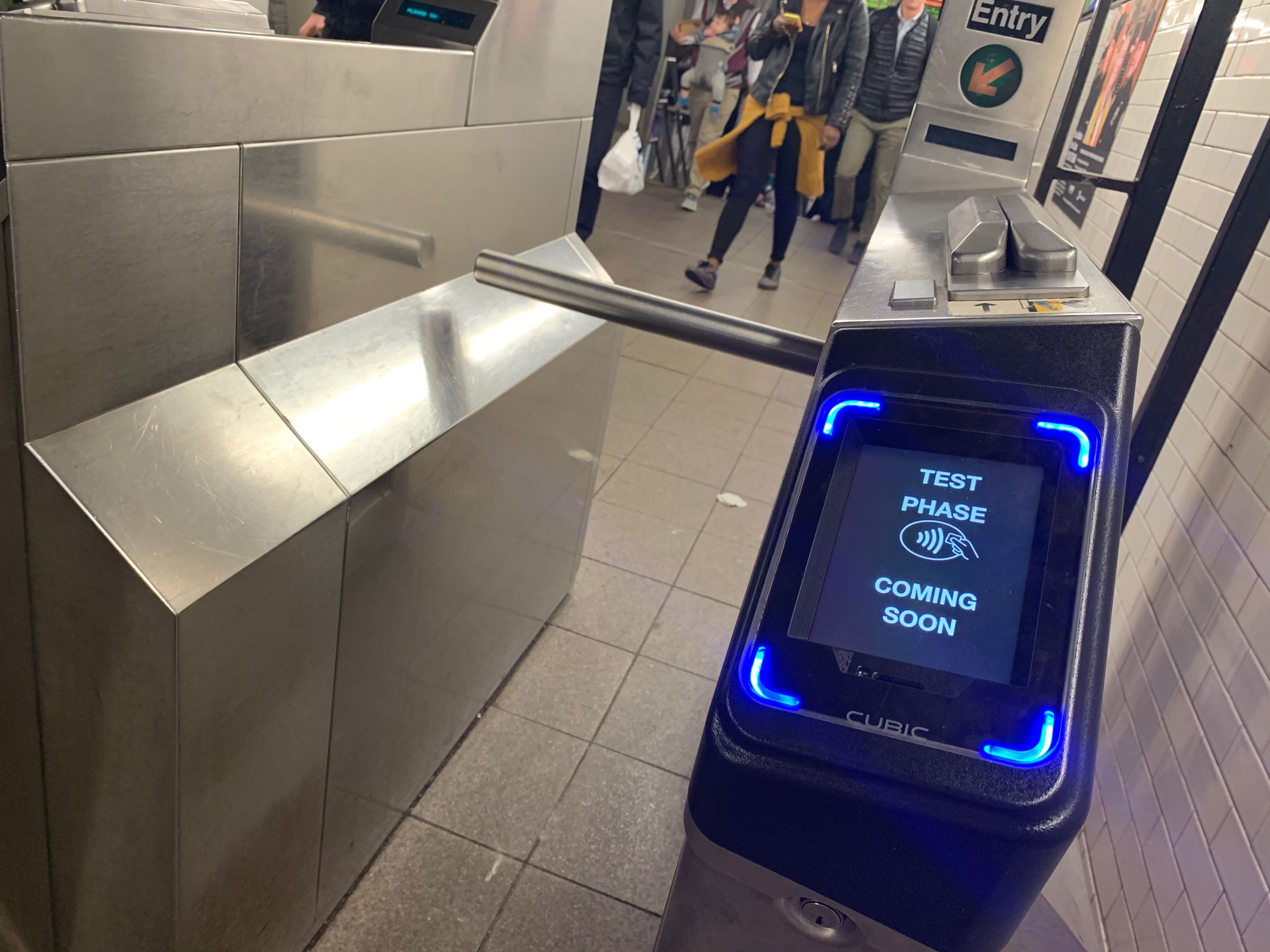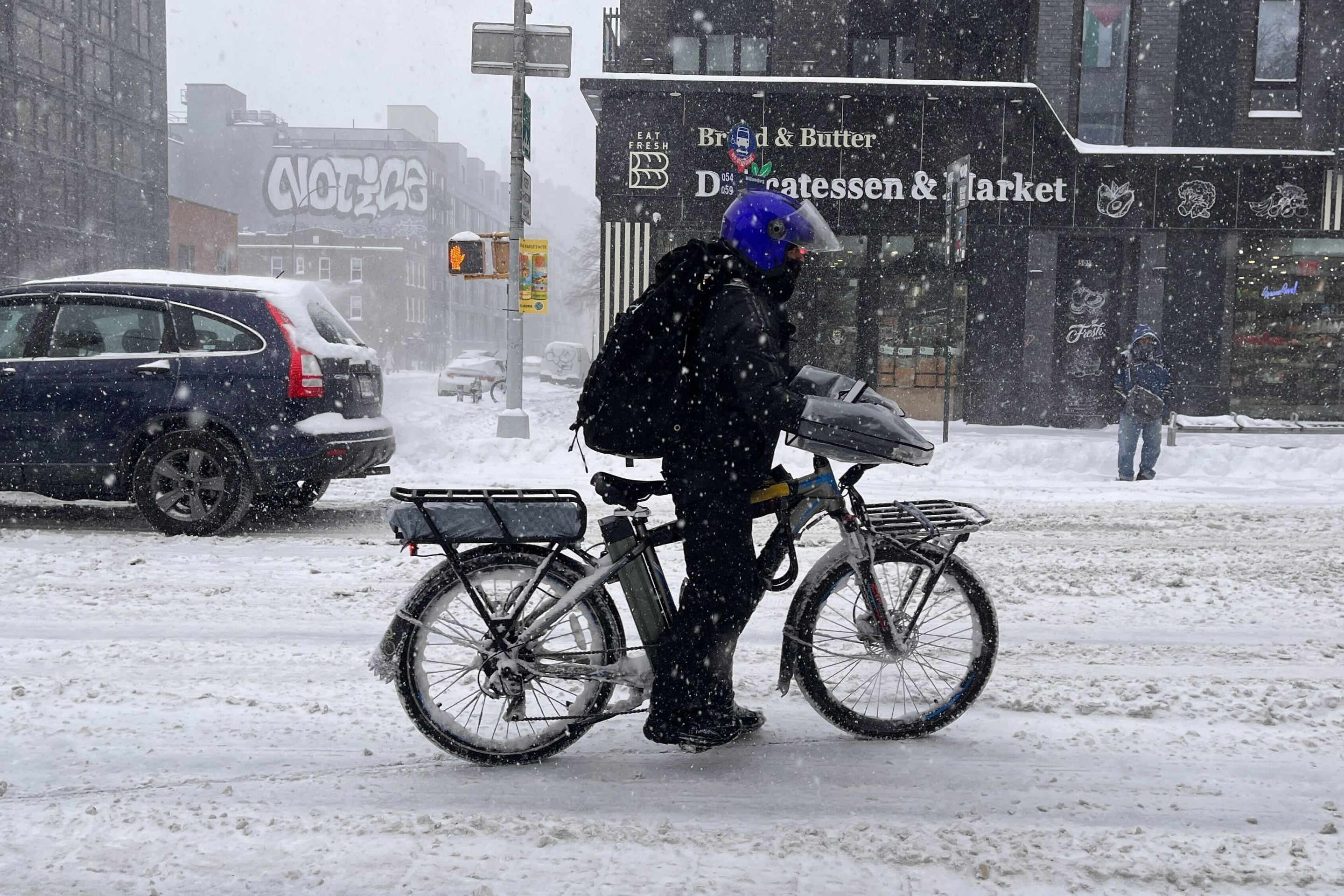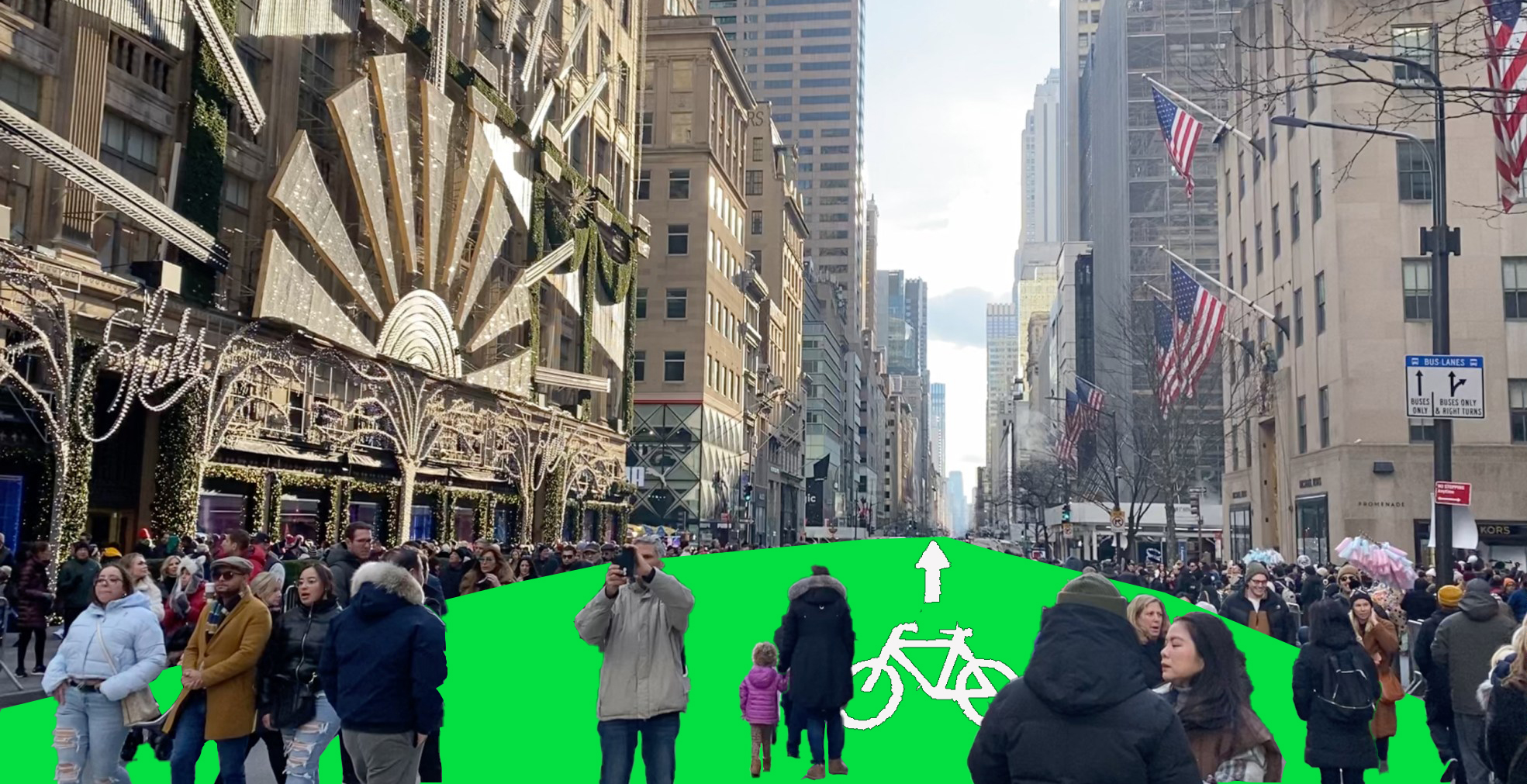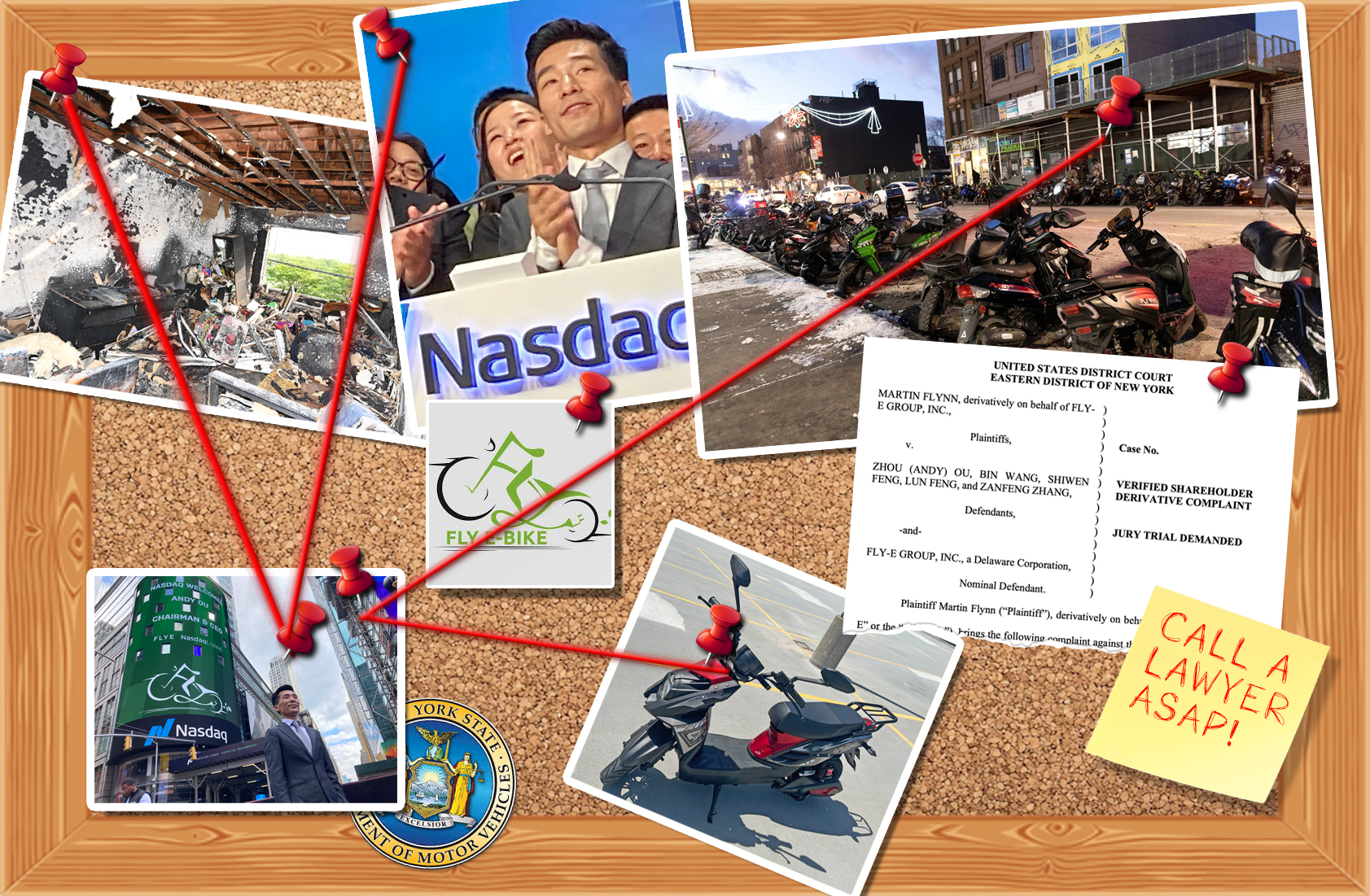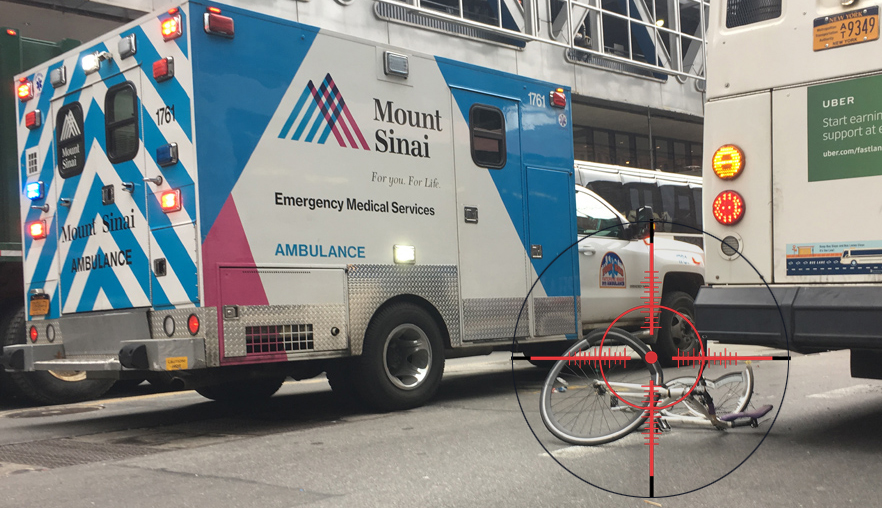All-door boarding on all city buses — a key benefit of the MTA's forthcoming new fare payment system — won't be available on most city buses for two more years, transit officials said Wednesday.
The MTA is already rolling out the fare-card tech, officially dubbed One Metro New York, or "OMNY," as part of a small pilot on Staten Island buses and the 4/5/6 subway lines between Grand Central Terminal and Atlantic Avenue.
Riders on local buses will continue to have to pay one-by-one at the front of the bus until 2021, according to project lead Al Putre.
"All-door boarding probably comes sometime in 2021," Putre said. "For now, the OMNY rollout is for the front of the bus."
With OMNY, New Yorkers will be able to pay transit fares via contact-less credit card, mobile application, or digital wallet service like Apple Pay or Samsung Pay. OMNY will coexist with Metrocards until 2023.
Transit advocates tout the impending fare payment transition as an opportunity for the MTA to speed up bus service by reducing the amount of time it takes for riders to get on and off the bus.
At present, riders on local buses must enter at the front of the bus and insert their Metrocards one-by-one. In the last decade, the MTA has introduced all-door boarding on Select Bus Service routes, but with off-board fare collection that requires costly vending machines. But the result has been faster bus speeds and increased ridership.
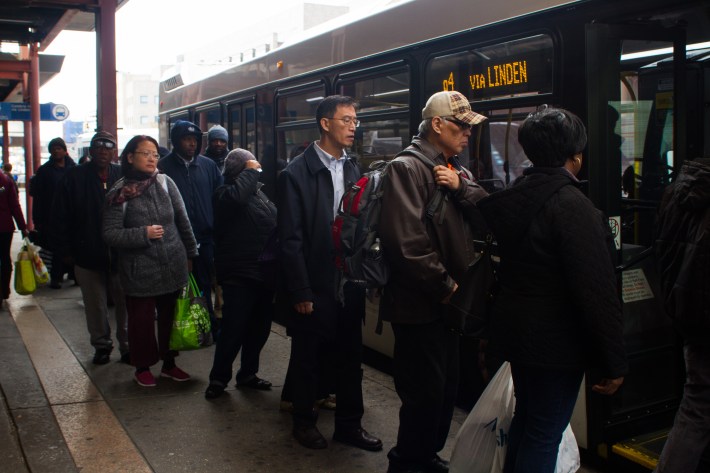
With "tap-and-go" capabilities, the MTA could put OMNY readers at all bus doors, allowing for faster boarding times.
But the agency is taking things slowly. Next year, it will install OMNY readers only on SBS routes as part of an initial pilot.
Putre pegged the timeline, in part, to "additional work on [the] back-end." He also said the number of passengers paying in coins had to be near-zero in order for all-door boarding to be viable.
"As long as we're still accepting coin on buses, all-door boarding is still on the back-burner," he said.
In addition to all-door boarding, the new fare payment system should also enable fare-capping, which allows riders to pay per-trip until they've spent the equivalent cost of a weekly or monthly pass. Cities like Portland and London have enacted such policies, but the MTA has not indicated any plans to introduce the practice in New York City.
The conservative approach frustrates advocates, who argue that New Yorkers need solid evidence of bus service improvements before congestion pricing goes into effect around the start of 2021.
"Now that congestion pricing has passed, it would really make sense to get this in as soon as possible," said TransitCenter Deputy Executive Director Tabitha Decker. "You want to give people an incentive to get back on the bus."
